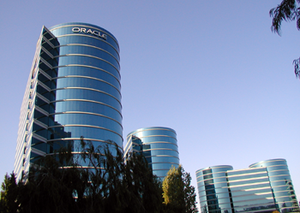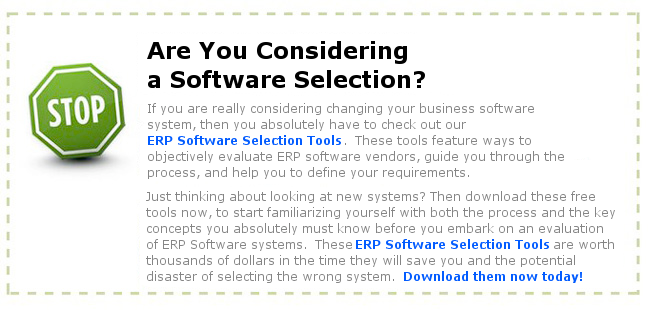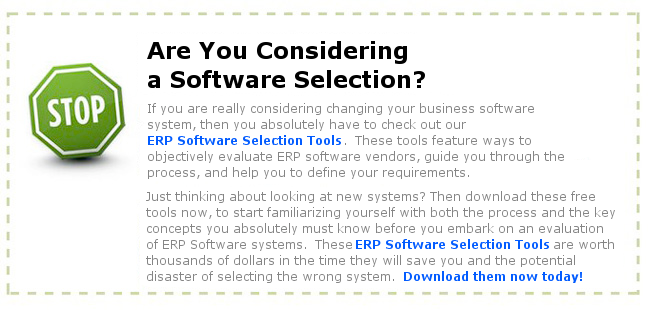When to use ERP Software Consultants
Many times companies try to select and implement ERP software on their own. Sometimes this works and sometimes it doesn’t. So the question is, when should a company use an ERP Software Consultant to guide them in their ERP Selection or ERP Implementation?
The answer is not so simple. If a company is mature and has the resources that can look independently at the business processes, then it may make sense to embark on a selection on their own. Most of the time in mid-market sized or even smaller clients, then it is difficult for them to 1. Spare the resources and 2. Look at the business processes objectively.
Any good ERP Selection begins with a company evaluating their business processes. Borrowing from the Toyota Production system (aka Lean Manufacturing), a company should first eliminate waste and then consider automating. Automating bad processes will only make things worse faster. However, automating good processes will help grow the business and promote better communication.

- Image via Wikipedia
ERP Software Consultants – Best Practices
The real question becomes how much is the company willing to flex their processes to adapt to “best practices” that are usually built into a commercial software system. If the company is flexible (and this takes a lot of leadership to make happen), they can select a system and model their business around that system. The larger commercial systems, such as those from Microsoft, Infor, SAP, Oracle, and others have all grown up from thousands of implementations from all sorts of companies. They have developed efficiencies that many companies who adopt the software’s methodology can benefit from.
The real key is understanding the fit of a software package to the business. If the company does some niche processing, then a mainstream commercial package may not fit. However it the company is a distributor or a manufacturer of discrete products as an example, then a standard mid-market product would likely work for them.
So how do you choose the software, it is back to the business processes and the key requirements. “Key Requirements,” not just all requirements. The things that the old system does not do well and those things that it does very well are good places to start. Additionally, discover those requirements or processes that set your company apart from others in your industry. Usually processes around your competitive advantage are part of the key requirements.
Going back to the original question, should you use independent ERP Software Consultants? If you have a clear and objective understanding, you can afford the time to really research the vendors and you have a strong will with salespeople, then going it on your own might be reasonable.
If you do not have the time, the understanding of the ERP Software market, or the will power to manage at an arm’s length the software vendor’s salespeople, then an ERP Software Consultant would be a wise choice.


